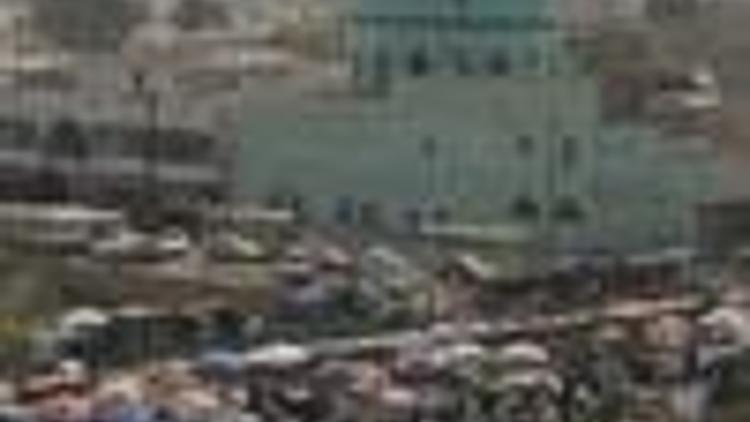UN to launch report on Iraq's disputed territories to avert clashes
Güncelleme Tarihi:

BAGHDAD - The United Nations will hand to Iraq on Wednesday a report on disputed territories, including Kirkuk, that it hopes will avert war between Kurds and the Arab-led government in Baghdad, western officials said.
The U.N. report on the future of Kirkuk, an oil-rich city which minority Kurds say is their ancestral capital, is the latest effort to end decades of conflict over an area that is home to a mix of Kurds, Turkmen and Arabs.
Ending tensions in the north is also seen as crucial to lasting peace in Iraq, where many fear that six years of bloodshed between once dominant Sunni and majority Shi'ite Muslims could be followed by war between Arabs and Kurds.
While foreign officials speak of an auspicious moment for compromise between Kirkuk's rival ethnicities, it will be hard to unravel a conflict rooted deep in Iraqi history.
"The dispute over Kirkuk is connected to oil, ethnicity, identity, land -- everything," said Rakan al-Jubouri, an Arab who is deputy governor of Kirkuk province.
Kurds insist that most people in the province, where rusty oil pipelines line highways and snake across oilfields, want to become part of the Kurdish region that has been virtually independent since 1991.
Sheltered from the war that ravaged the rest of Iraq after the 2003 invasion, Kurdistan appears orderly and prosperous. But there are strenuous objections from Kirkuk's Arabs and Turkmen, who accuse Kurds of greed and abuse.
The U.N. report lands as Iraq looks to national elections late this year and as Prime Minister Nuri al-Maliki, a Shi'ite Arab whose nationalist message has gained him support, seeks to assert greater central government control over Kirkuk.
"DICTATORIAL"
His assertiveness brings bitter responses from Arbil, the Kurdish capital, where officials speak in alarmed tones of an authoritarian style akin to Saddam Hussein, who slaughtered Kurds en masse.
"Nobody can control Iraq in a dictatorial way. We have a right to our opinion, and we reject any decision against Kurdish people, crushing articles of the constitution," said Adnan Mufti, head of the Kurdish parliament.
Iraq's 2005 constitution envisaged a referendum on Kirkuk, but it has not happened. Arabs and Turkmen say it cannot now.
Arabs and Turkmen in Kirkuk complain that Kurds have exploited their strength -- some blaming U.S. officials for handing them control of the province in 2003 -- and say Kurds have moved half a million Kurds into Kirkuk since then.
The rift between Iraq's Kurds and Arabs widened after Maliki brought a new division of Iraqi Army troops to Kirkuk, alarming Kurdish Peshmerga troops long stationed in the province.
Yet U.S. officials suggest that Kurdish politicians may be more ready to compromise as they contemplate the withdrawal of longtime ally the United States and the likelihood they will lose some of their parliamentary clout in upcoming polls.
Many Kurds speak fearfully of resurgent Arab power and of the U.S. plan to withdraw all its troops by the end of 2011.
"We have to convince (the Kurds) to be trusting in both of their governments ... that the international community won't allow that to happen, civil war or unjust treatment of people," said Colonel Ryan Gonsalves, the U.S. commander in Kirkuk.
The U.S. military is watching for increased violence in Kirkuk, where a car bomb killed 10 people last week. After six years of bloodshed and bickering, many of the city's people are filled with cynicism.
Ali Sadik, a spokesmen for the Turkmen Ily party, sees little reason for optimism. "There is no intention or real solution from the Kurdish side. On paper, there is dialogue, but no action," he said.

